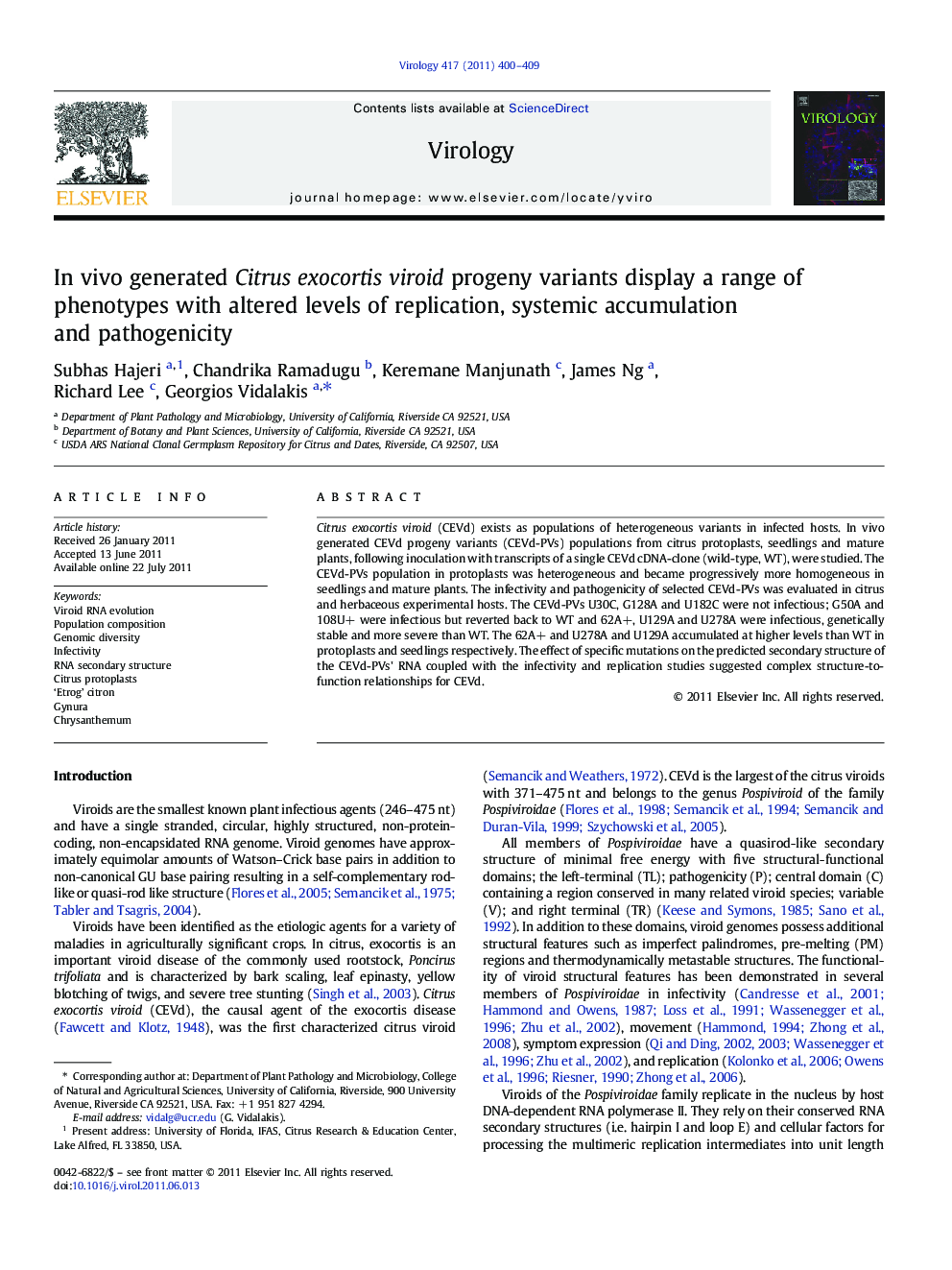| Article ID | Journal | Published Year | Pages | File Type |
|---|---|---|---|---|
| 3424788 | Virology | 2011 | 10 Pages |
Citrus exocortis viroid (CEVd) exists as populations of heterogeneous variants in infected hosts. In vivo generated CEVd progeny variants (CEVd-PVs) populations from citrus protoplasts, seedlings and mature plants, following inoculation with transcripts of a single CEVd cDNA-clone (wild-type, WT), were studied. The CEVd-PVs population in protoplasts was heterogeneous and became progressively more homogeneous in seedlings and mature plants. The infectivity and pathogenicity of selected CEVd-PVs was evaluated in citrus and herbaceous experimental hosts. The CEVd-PVs U30C, G128A and U182C were not infectious; G50A and 108U+ were infectious but reverted back to WT and 62A+, U129A and U278A were infectious, genetically stable and more severe than WT. The 62A+ and U278A and U129A accumulated at higher levels than WT in protoplasts and seedlings respectively. The effect of specific mutations on the predicted secondary structure of the CEVd-PVs' RNA coupled with the infectivity and replication studies suggested complex structure-to-function relationships for CEVd.
